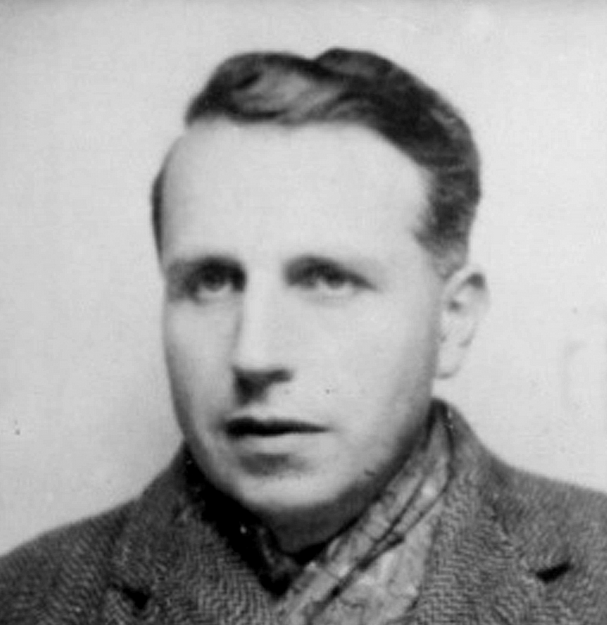Did they really believe Israel would be socialist?
Why was there an ideological change away from Lenin's anti-zionist position?
I'm currently trying to investigate this. It doesn't make sense to me for there to make concessions to zionists when the Jewish Autonomous Oblast existed and Soviet Jews were well-integrated into Soviet society.
It makes even less sense concidering Stalin's writings on the matter in his pamphlet on the national question, Stalin's anti-zionist but pro-jewish position through out his life, the sudden pivot towards the creation of a zionist state then another sudden pivot quickly after of the perceived "antisemitism" heaped onto him shortly after in the final stretch of his life.
In a memorandum dated 27 July 1945, from M.M.Litvinov, titled ‘The Palestine Question’”, to Stalin, Molotov and the Deputy Ministers of Foreign Affairs. Its conclusion read:
-
No matter how hard the British may try to prove that their present policy in Palestine conforms to the Balfour Declaration, it is obvious that they have failed to live up to the mandate entrusted to them. This was admitted in the.. statements by high-ranking British statesmen. This is sufficient justification for taking the Palestine mandate away from the British.
-
The Palestine question cannot be duly settled without impinging upon the wishes and rights of Jews or Arabs, or perhaps both. The British government is in equal measure subject to the influence of the Arab states and world Jewry. Hence its difficulties in choosing the correct means to settle the Palestine problem.
-
The US government is subject to the same influences. While British Palestine policy is necessarily affected mainly by orientation towards Arab interests, the American government is subject in the first place to the influence of the powerful US Jewry. It should be recalled that at the latest presidential elections both the Democratic and the Republican parties felt compelled to issue declarations on their attitude to Palestine, demanding unrestricted immigration of Jews and unrestricted rights for Jews to their own land. At the same time, the US government would hardly choose to quarrel with the Arabs, in view of the fact that the oil pipeline from Saudi Arabia in which they have a stake will run through hundreds of kilometres of Arab territory. That would put the US government in as difficult a position regarding Palestine as the British government.
-
The USSR, free from either Arab or Jewish influence, would be in a better position to tackle the Palestine issue. This at least entitles it to request a temporary trusteeship over Palestine until a more radical solution is found.
-
The British attach to Palestine, which guards the approaches to the Suez Canal and has an outlet for Iraqi oil on its territory, too much importance for us to expect them to consent even to a temporary transfer of Palestine to the hands of another state, particularly, the USSR.
-
In the event that the Soviet request is rejected the following solution suggests itself: transfer of Palestine to the collective trusteeship of three states – the USSR, USA and Britain. These three powers will be able to take the requisite decisions collectively, paying less tribute to the opinion of the Arab or the Jewish population than either the American or British government acting on its own would feel obliged to do.
-
The provisions of collective trusteeship shall be bound neither by the Balfour Declaration nor by any promises Britain has earlier given as the mandatary power, so that the new collective administration could tackle the Palestine problem in all fairness, in accordance with the interests of the entire population and the new imperatives of political realities and general security.”
Source: Strizhov I;:” The Soviet Position on the Establishment of the State of Israel”; Op Cit; p.304-305; Citing 5.Arkhiv vneshnei politiki MID SSSR (AVP),fond (f.) . 07,opis’ (op.) 12a, papka (pk.) 42, delo (d.) 6, pp. 36-8
Something had to have happened between this period and when Gromyko went to the U.N to advocate for the creation of an Israeli state in 1947, and that's what I'm trying to research now in my own personal time.
I read that the USSR's position was that Israel and/or Palestine shouldn't be subject to a trusteeship, because it would put the people of the region at the whim of the west in an exploitative and fragile partnership, and the USSR only agreed to a trusteeship because it was in the best position to do so.
-
I'm not an expert on the issue but just from applying common sense I'd imagine that coming out of the wake of WW2 and what the Nazis did to the jews that it just sounded like the morally right thing to do at the time. Similarly, it also seemed morally right at the time when Lenin, Stalin and Khrushchev gave territorial concessions to Ukraine after the legitimate oppression they faced under the Russian Empire and couldn't of known what a mistake that would eventually be.
I don't think Ukraine being given concessions was the problem, and I don't think the existence of Ukraine is a problem either. The problem is that the country is currently being used as a fleshlight battering ram against the Global South.
I mean yeah obviously if Ukraine didn't go down it's fascist path then yes the concessions wouldn't have ever been an issue in themselves but alas, they did.
While I hesitate to speak on this topic, given that it's already a super-contentious topic among historians (that's saying alot) the best from what I can gather is that while Lenin agreed that Zionism is a disgusting ideology of racial supremacy, Lenin's time had come and gone decades ago, and he more or less "served his purpose" in helping overthrow the Tsar and create the USSR.
Because of the tremendous horrors of the holocaust/WW2, my best estimation is that the USSR/Stalin felt that since many other ethnicities had their own "home country", that opposing a home country for Jewish people would be hypocritical and wrong and lacking in empathy, and that if Jewish people didn't deserve a secure home country, then no one did.
I think that Stalin's support for the state of Israel was an example of what Stalin thought was pragmatic realpolitik, and would help the USSR be considered a potential ally and savior of Jews, and oppressed people across the world.
The Arab/Southwest Asian countries at the time were often repressive and reactionary dictatorships, that especially enjoyed the support of the U.S./Britain, and I can understand the genuine worry and concern that the West would inflame tensions to create a second holocaust and make Arabs into the bad guys and supremacists.
I think sympathize with Stalin's decision, and I think that hindsight is 20/20. I'm not arab, I'm Latino. This is just my best guess.
I picked up somewhere that Stalin was hopeful of the communism of the early kibbutzim.
Right. And numerous Jewish people in the Southwest Asian region were supporters of socialism/the USSR, so with the west being a rival power and having evil intentions, I think Stalin assumed that Israel could exist as an independent and allied socialist state that resisted arab dictatorships and western imperialism.
And then it turned out that the Kibbutz of Israel was a result of cultural appropriation of arabic traditions.
Agree. Zionism was "sold" to the USSR as a national question, but after it was exposed for what it really was, settler-colonialism, then the USSR changed positions and took a hostile position towards Israel. They even fought a secret war against Israel in support of Nasser in Egypt in the 1960s.
I have never had any issues understanding the position of the USSR on this. It would have been incredibly difficult for a Soviet leader to say no to the idea in the immediate aftermath of WW2. They would have immediately been alienated from the international community and drawn extreme criticism even from their own people. I think it's to their credit that they did a 180 once it became clear what the true nature of the Zionist project was... that it could never be the socialist society that "left-wing" Zionists had dishonestly marketed it as. The Soviet leadership were deceived just like many other people at that time. In hindsight it is easy to say that they should have acted differently, and it doesn't excuse their mistake but we always have to look at the full historical context.
As I understand, it was a mistake that was caused by the reading that the kibbutz based society of Israel would offer the possibility for the rise of a socialist movement, but when it was clear that it was a mistake the Soviet Union rejected Israel and supported Palestine
Is there a good book or essay you recommend on the topic that would further educate? I've been working to learn more about history that isn't just the imperial core garbage I was raised on.
I wish I had, I've heard this argument on a livestream of a communist historian from Brazil, the guy is a very reliable source so I feel alright mentioning the argument but I have no further literature unfortunately
https://en.wikipedia.org/wiki/Jewish_Autonomous_Oblast
Important context shouldnt be ignored. They didnt think it would be a big deal due to them already offering jewish people an automonous zone within the USSR, and them having just defeated the Nazis, which was the orginal point of contention with the zionist project, its allignment with fascist Germany.








